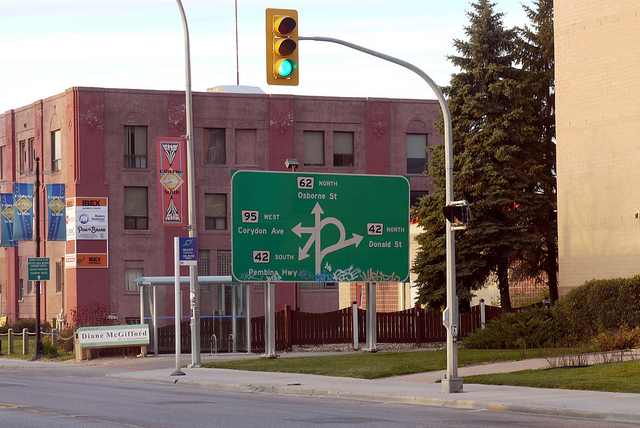Progressives in Winnipeg were dealt a major shock on Wednesday evening as two-time mayoral candidate Judy Wasylycia-Leis fell short in her second bid for the mayor’s chair, falling to Progressive Conservative affiliated privacy lawyer, Brian Bowman, with Robert-Falcon Ouellette placing third.
Having consistently polled in first for over a year, after finishing a strong second in the 2010 contest, many were shocked to see Wasylycia-Leis lose the race, especially by a 50,000 vote margin.
The trend continued: only one incumbent councillor endorsed by the Winnipeg Labour Council was defeated. Jason Schreyer, son of former Premier Ed Schreyer, defeated former Winnipeg Jet Thomas Steen, who’s campaign was dogged by controversy around recent assault charges.
Winnipeg, a stronghold for the provincial NDP, looked like it was about to elect a progressive mayor for the first time in recent history.
Combined with strong poll results and a right wing split between two formidable candidates, former St. Vital Councillor Gord Steeves and former chamber of commerce president Brian Bowman, the odds looked favourable for Wasylycia-Leis in her second attempt to win the Mayor’s office. In polls leading up to the election, she had regularly polled ahead of her competition.
On election day, Wasylycia-Leis pulled in under 25 per cent of the vote, compared to 47.54 per cent for Bowman, 15.7 per cent for Ouellette. Steeves attracted just under nine per cent. Several factors caused the electorate to vote in the manner that they did, although a poll released days before the vote indicated that the race was a dead heat between Bowman and Wasylycia-Leis.
The split on the right never materialized as Bowman, who was polled at six per cent as late as January, clearly marshalled the business community around him as Steeve’s numbers continued to drop. In the end, it made Bowman the consensus candidate for those right-of-centre.
Secondly, the emergence of Ouellette also proved to be an interesting story line in the race. A little-known university administrator, Oullette ran as an independent, picking up organizational and policy development support from Liberals who felt disenfranchised by both Wasylycia-Leis and Bowman. Speaking openly about the racial divide in the city on multiple occasions, Oullette harnessed momentum from undecided and first time voters, particularly the youth vote. While his platform extended to a centrist, or even right of centre realm, Oullette was nonetheless able to attract a fair show of support from the progressive community.
Finally and perhaps the biggest factor in the election was Wasylycia-Leis’s inability to sway voters as she ended up with fewer votes than she did in her 2010 effort. Notions of strategic voting cropped up across the city, as progressives urged Ouellette supporters to vote for Wasylycia-Leis in an effort to prevent Bowman’s ascension.
After the votes were counted, though, Bowman’s margin of victory was larger than Oullette’s total vote count, indicating that Bowman may have successfully taken away votes from Wasylycia-Leis in the last two weeks of the campaign.
Dwelling on the failures of the campaign does nothing to help Winnipeg move forward, however. Winnipegers who are interested in progressive politics must now pick up the pieces and work to rebuild.
Despite support from the provincial NDP and the labour movement, Wednesday saw defeats of most labour-endorsed candidates, many of whom ran against incumbents.
The end of the night brought a significant amount of soul searching for progressives. For the future, the progressive movement needs to identify new sources of activism. They will also have to work to hold Bowman to account on a wide variety of issues.
During the campaign, Bowman promised to build and complete all planned legs of Winnipeg’s rapid transit system. This signifies a major commitment, as Winnipeg has spent 50 years debating and discussing the merits of rapid transit, the result of which is a half-completed busway. If citizens are able to hold Bowman to his promises while simultaneously pushing a forward-thinking agenda, then there is still hope for progressive politics at City Hall.
With a provincial election on the horizon as well, the missed targets for the civic election must not be taken out of context. Establishing a base at City Hall provides right leaning parties with an opportunity to expand their political operation as the provincial NDP government celebrates its 15th year in power. The provincial election, expected after the federal contest, will demonstrate how well progressives are able to re-organize and re-establish themselves in the wake of Wednesday’s results.
Zach Fleisher is a student and activist in Winnipeg. He was involved in advocating for the Universal Bus Program (U-Pass) for university students and works on transit issues and other key municipal issues.




